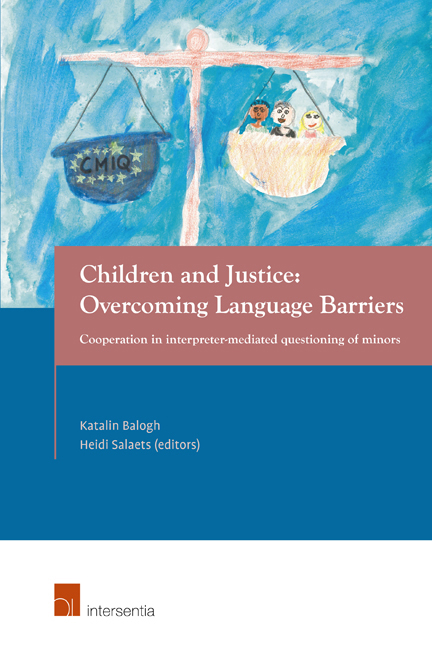 Children and Justice: Overcoming Language Barriers
Children and Justice: Overcoming Language Barriers Chapter 3 - Interpreted interviews with highly vulnerable children
Published online by Cambridge University Press: 22 November 2017
Summary
DEFINITIONS AND VULNERABILITY FACTORS
“Vulnerability is a concept fraught with paradox. To start with, the concept is in common use but its meaning is imprecise and contested. Confusing, complex, vague, ambiguous are but a few of the labels scholars across disciplines have used to refer to it. (Bio)ethics and law, in particular, are disciplines which have spawned an extensive literature on vulnerability.”
Lourdes Peroni - Alexandra Timmer, Vulnerable groups: The promise of an emerging concept in European Human Rights Convention law
“Vulnerability is our susceptibility to be wounded. This fragility is part of our nature and cannot be escaped. The best the brain can do is to shut down conscious awareness of it when pain becomes so vast or unbearable that it threatens our ability to function. The automatic repression of painful emotion is a helpful child's prime defence mechanism and can enable the child to endure trauma otherwise be catastrophic. The unfortunate consequence is a wholesale dulling of emotional awareness.”
Gabor Mate, In the Realm of Hungry Ghosts: Close Encounters with Addiction
“On and on the rain will say
How fragile we are“
Sting, “Fragile”
If an object is easily broken or damaged, we deal with it cautiously and treat it in a certain careful way. We even place a warning label on the box it is packed in or on the wrapping, reminding everyone who comes into contact with it, that it is fragile. We, human beings, ‘subjects’, although we have no warning label attached, are all fragile; fragility, as Gabor Mate put it in the quotation above, ‘is part of our nature and cannot be escaped’. True as this may be, however, some of us are even more fragile, or, to use another term, more vulnerable than others due to certain personal or external characteristics and features. Therefore, we have at least the same level of responsibility and duty of care towards them as is shown to objects: the responsibility to provide enough attention and concern, to ensure special treatment due to their specific needs, and to follow specific or exceptional norms to prevent them being injured and harmed, as far as possible.
- Type
- Chapter
- Information
- Children and Justice: Overcoming Language BarriersCooperation in interpreter-mediated questioning of minors, pp. 77 - 174Publisher: IntersentiaPrint publication year: 2015


